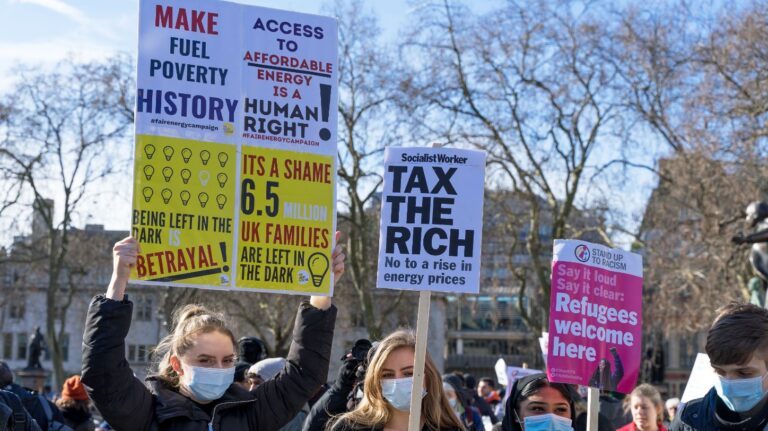As many as five million people (8%) in the UK are being driven into ‘transport poverty’, according to findings published by the Social Market Foundation (SMF).
The SMF, an independent British political public policy think-tank, defines transport poverty as occurring when households spend so much on private and public transport that it pushes them below the poverty line.
The organisation has suggested that the UK government’s pursuit of Net Zero 2040 has created a transition period of policy introduction that disproportionately affects the poor.
Future regulations that gradually tighten the restrictions around internal combustion engine (ICE) vehicles will further exacerbate Britons’ financial issues, warned the organisation.
During the transition period, in which there is a mix of electric vehicles (EV) and ICE vehicles on the road, motoring taxation is likely to become increasingly regressive without policy intervention, with lower income households footing a greater proportion of the remaining fuel-duty bill.
The UK Department for Transport has forecast that road traffic in England and Wales will grow by between 17% and 51% by 2050, compared with 2015, driven predominantly by a combination of population growth and a reduction in vehicle running costs.
For every 10% increase in public transport journeys relative to motoring, the average household reportedly pays £400 more for transport each year.
The report also states that fuel-duty costs per year have risen from £521 to £624 per household for those that have vehicles.
The current system sources revenue through fuel-duty hikes, leaving EVs untaxed. In a scenario that considers total adoption of EVs, the share of fuel-duty costs borne by the poorest 40% of households would rise from 20% at present to 41%.
Meanwhile, higher-income households, which drive more miles on average, would end up undertaxed for the congestion that they are generating, said the SMF.
The UK’s transition to EVs will also virtually eliminate government fuel duty and vehicle excise duty by 2050, representing a £30bn tax deficit.
To recoup these losses through income tax, ministers would need to increase rates by up to 2p in the pound by the end of the next Parliament, and up to 6p by 2040.
The SMF has suggested the government introduce a new motoring tax system based on a uniform per-mile charge and a free mileage allowance per vehicle, which would be financially beneficial to lower income motorists, compared with the current fuel duty regime.
According to the SMF, modelling shows that a free first 2,500-mile scheme would leave motorist households in the bottom two income quintiles, about £20 per year better off than the current fuel duty regime, amounting to about £92m before rising to £188m if the scheme was extended to 5,000 miles.
SMF research also revealed that motorists are resistant to proposed tax changes, arguing that they shouldn’t incur costs on vehicles they are encouraged to buy by the government, with 43% expressing fears about paying more than they currently do.
To improve transparency around motoring taxation, and to show clearly that road pricing is to be used to tackle congestion and other societal harms, the SMF suggested establishing a Road Pricing Commission.
The commission would provide annual recommendations for the setting of road pricing rates to meet social objectives such as reduced pollution and congestion.
SMF researcher Gideon Salutin said: “Transport is the single greatest household expense for rural homes and the second biggest for urban ones.
“But we still don’t understand those struggling to pay for it the way we understand other forms of poverty like housing and heating. Understanding and tracking transport poverty is a long overdue endeavour.
“Fuel duty gets all the headlines, especially now that so many policymakers have convinced themselves that they have to defend motorists from fictional attacks. Yet it is far from the best tool at their disposal if they really want to help the hard pressed.
“Our research shows that transport poverty can be rigorously tracked, and therefore can be alleviated – but only by investing in public transport and making alternative private transport like electric vehicles cheaper.”
Innovations and achievements in sustainable urban mobility will be celebrated at the second annual CiTTi Awards on 21 November 2023 at De Vere Grand Connaught Rooms in London. Visit www.cittiawards.co.uk to learn more about this unmissable event for the UK’s transportation sector – and to book your table today!





